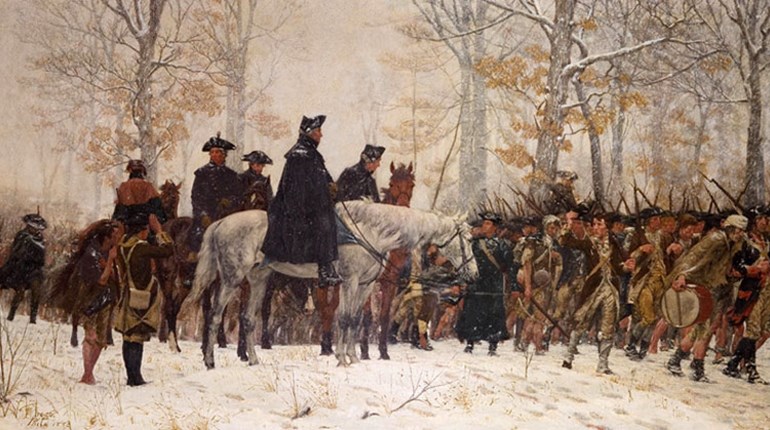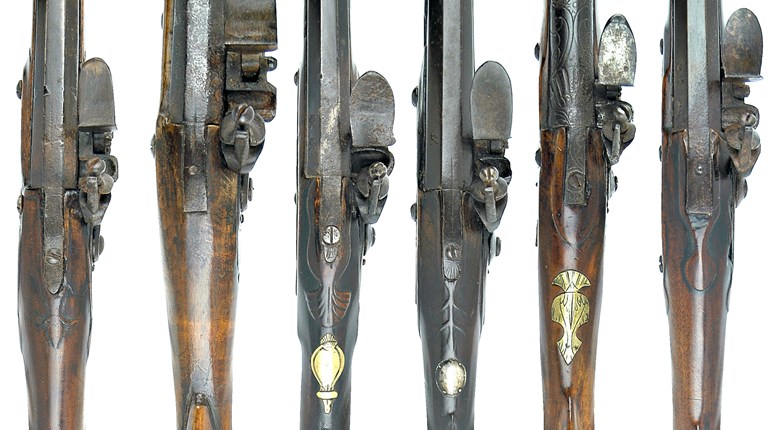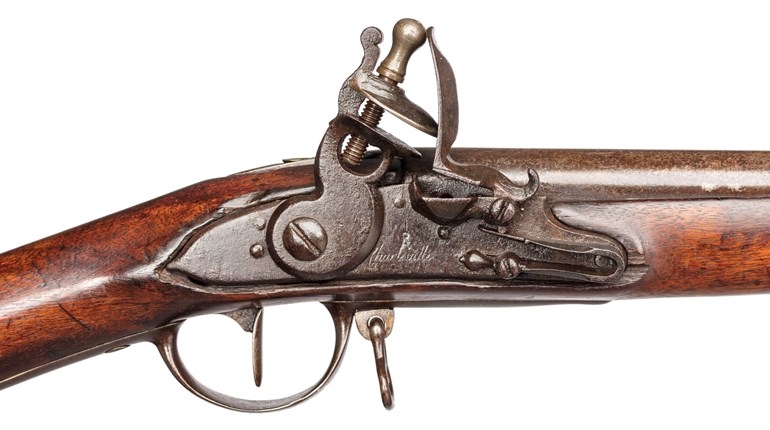
Where Wall Street begins, or ends, depending on the direction traveled, sits this place, a beautiful church and a cemetery whose paths are rarely trodden.
Alexander Hamilton is buried here. So are officers of the Revolutionary War and delegates to the Continental Congress. A naval hero during the War of 1812 is interred here, too, as are many whose signatures grace the Declaration of Independence and the Constitution of the United States. Some of our first congressmen and senators are here, as are frontiersmen and Continental Army surgeons, commodores and generals. And there are the unknown—unrecognized perhaps only because biographers neglected them.
I visit this place often. A daily commute takes me right past it. Aside from historians, taphophiles and, ironically, tourists from abroad, few commuters know about Trinity Churchyard in New York City, or about the patriotic souls it carries within. And yet, traders and brokers and doctors and secretaries walk by it every day.
In midsummer, the city celebrates our country’s independence with brilliant firework displays on the East River. Elsewhere, too, but here in full view of this very cemetery, deafening booms conjure up the cannons that helped birth our nation; hissing lit fuses, smell of spent powder, the flare of each shell, hearken us back to Concord, to Trenton and Saratoga and back again to the present, where in backyards and on public gun ranges, and afield, we are reminded by the sights and sounds of the reasons we celebrate our nation’s arrival.
I work in New York City, so this is a daily immersion in our history for me. Elsewhere, small-town squares retain the plaques of Revolutionary dead, and in July they are lovingly tended—small American flags are placed into the earth around each of them. Other towns have their cannons on display, pyramidal stacks of balls beside them; the still remnants of their forts unearthed. There are museums, taverns and parades with fife and drum.
July has begun. That dazzling sun. Light, even late in the day, reigns. The farmer drives his tractor long after dinner. Heat rises in waves, from the black-tar roads and, in some kitchens, from the ovens baking fruit pies. We mark our summers by the Fourth. Everything that comes after seems to arrive with hurtling speed.
The cheerleader’s baton might no longer twirl, as it did in simpler times, but somewhere in America, a fire truck, newly polished, beams bright-red in the summer processions. In Montana, cowboys ride their horses ahead of it; in Nashville, it is a high school band. Somewhere else, in a New England town, it will be those in costume, men in white blouses, waving their tricornes, tapping their drums. Telluride has barbecues and root beer floats. F-16 Falcons shred the skies over its main street, the sound of their engines hang in the mountains long after they pass. In Hannibal, Mo., it isn’t Independence Day, but days, as the celebrations last throughout the week. Where Mark Twain lived, there are frog-jumping contests; on our coast, they race lobsters. It is a cliché, but also true, on this day the pies are homemade, chicken is deep-fried and the bands play Dixie music.
There are places you want to visit. Lexington and Concord come to mind, and Boston for the harbor, of course, where the school texts tell us it all began. On any day, but especially the Fourth, you can walk the Freedom Trail, stopping in pubs to replenish yourself. At Fort Ticonderoga, the gulls loudly converse above. In the distance is green Vermont shimmering off the lake, beyond the sailboats, where the raiders began their assault.
“…Yet through all the Gloom I can see Rays of ravishing Light and Glory. I can see that the End is more than worth all the Means….”
Everywhere is this idea of our Founders, and of the pioneers who followed, that these breakaway colonies would stand alone in history as the birthplace of something special. Nostalgia? Perhaps. There is always the impulse to aggrandize the beginning of the American experiment.
For most of us, this means fireworks, flags and parades. There is something martial about it all, which is right; after all, our nation wasn’t born without a fight. And if men and women died so that we could live freely, died again in another war so that we were all free, and died again and again in the wars that came after so that we remained free, well, then celebration and memorial are in order.
John Adams, in a letter to his wife, Abigail, believed the day would be remembered “…with Pomp and Parade, with Shews, Games, Sports, Guns, Bells, Bonfires and Illuminations from one End of this Continent to the other from this Time forward forever more.”
Today, a man shoots his 1911 at paper down range. He is invoking not only the men who carried the same pistol in 20th century wars, but those who carried something more primitive in the wars that came before. If an exploding brick of firecrackers recalls the gunfire of 1776, then the pyrotechnics and booms in the skies over town parks and beaches echo the cannons in New York harbor. So strong is this barely conscious urge to acknowledge the sacrifices of our Founders that we reenact it on ranges and in the woods with pistols and rifles, some of us using the same black powder.
The first time, some say, was in Philadelphia, where armed ships of the Revolution gathered in the river, their cannons firing. Thirteen volleys, one for each colony, and later, when it became dark, thirteen rockets. Or was it in Boston, with their own booming displays and fiery speeches? We know what followed. More and more cities took on the practice; it became our summer tradition.
In the various ways we celebrate our birthday, there is the common theme of fireworks. Cannons and gunfire gave way almost exclusively to the lit fuse, and a spinning wheel of sparks, bursting shells and flowering candles. Still, there are the echoes. Those hissing fuses, that pregnant delay before the explosion. Is this not the same as the flint igniting the tray of powder when the trigger is pulled? Once upon a time pioneers and mountain men celebrated by shooting their guns at the town’s blacksmith anvils. Clinton, in Tennessee, reminds its citizens of this tradition even today. They do so by launching 100-pound anvils into the air with exploding gunpowder, a fireworks display I am sure is unsurpassed in this country and dear to the hearts of gun enthusiasts everywhere. The smoke of battle still stings the eye, still bites at the nose.
So much else about my daily commute calls upon the ghosts of Independence. Fraunces Tavern, where George Washington bade his troops goodbye, is just around the corner. I pass Federal Hall, home to the first Congressional offices, the first presidential and U.S. Supreme Court meeting places. It was here Washington took his oath of office. Each day, when I walk by these landmarks, I am thinking of our country and the freedoms preserved. I can’t help but be reminded of the Fourth and the way we celebrate it.
My children began with pellet guns, and then .22s. When my daughter fired her first flintlock, she could not believe how gentle the recoil was. It had been so loud. There had been that bold flash, like a match struck in the dark, and the smoke. When it cleared, I told her our country was founded not only on the principles she had learned in school, but with the musket, not unlike the one she held in her hands. They began as I did, those summers long ago, when no one cared about a couple of kids running around plinking bottles or lighting firecrackers, whose fuses peeked out from under tin cans.
It is more difficult today. Open spaces are harder to find. Once, we shot in meadows at soup cans we asked our mothers to save. There is only so much paper one can shoot. And, of course, we wanted the noise.
The tiny cracks of our .22s, the dull dings of tumbling cans, became the booms of more powerful guns, and then we were in the woods. Older now, we carried the bigger tools of our sport; one that if practiced and taken seriously, put food on the table. Our ears rang with their reports. Modern rounds didn’t smoke, but we could still smell the powder. That same smell drifts across parade grounds around the country long after the fuses have been burned.
On ranges, in the field, for the fellow reloading his own ammunition in the garage, there are ever present the faint echoes of our history. So, too, in the skies over parks and beaches and commons across the country in July.
There is always some undercurrent of mythology in our nods to the past, but there are deep truths. The two mingle into a collective memory. “The only things that are important in life are the things you remember,” said James Salter, a fine writer who flew jets in Korea. This is true, of course.
John Adams ended that letter to his wife: “You will think me transported with Enthusiasm but I am not. —I am well aware of the Toil and Blood and Treasure, that it will cost Us to maintain this Declaration, and support and defend these States. —Yet through all the Gloom I can see Rays of ravishing Light and Glory. I can see that the End is more than worth all the Means….”
The skies at night on the glorious Fourth bloom and boom with the memory of those words. They are to be remembered. We must hold onto them and repeat their sentiment, a truth about our freedom we act out everyday on ranges all over America and by teaching our children about their freedom won with arms and celebrated on the Fourth of July.


































